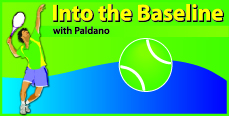Davis Cup ‘Team making’
View(s):Sri Lanka beat Lebanon in the relegation playoff of the Asia-Oceania Group Two last weekend in Lebanon. With 105 points, Sri Lanka is placed 63rd in the worldwide Davis Cup team ranking. In the main competition, Pakistan stopped us in the opening round. This win against Lebanon will keep us in Group Two next year; again.
There are five groups in the annual inter-nation Davis Cup competition. The World Group plays for the Davis Cup itself, while others play to be promoted. The first three groups’ ties are played in a five-match, five-set format while the other two fit into a three-match, three-set format.
Canada in the semis
In the World Group, unseeded Canada shocked top seed and last year’s winners Spain in the opening round. Last week they also took Italy out of the competition. Milos Raonic, with a world ranking of 16, was the Canadian hero. Canada is the only unseeded team in the semi-finals of the world group. The other teams are Argentina, Serbia and Czech Republic.
The development challenge
Sri Lanka has been competing in the Davis Cup from the early fifties. In the five-match format, a team needs two very good players and a strong doubles pair. This winning formula has been a challenge for many countries like us. Without this team composition, the leading player will have to man the singles and doubles. That is playing up to fifteen sets in three days. In short, a one string banjo team will not work in the Davis Cup. In the last tie against Lebanon, the number ones of both countries, Godamanne and Beidas, played eleven sets each. Beidas is ranked 1060 in the ATP world rankings. We have had good team composition before, but few and far between.
The late Bernard Pinto played Davis Cup tennis for seventeen years for Sri Lanka. In the new format, currently Rajeev Rajapakse has played 47 ties. Statistics show this trend in many countries.
Magic of a good player
Many millions take to the game every year. Like in all sports, replacements of elite players, nationally and globally is slow because good players are rare in any sport. The most difficult challenge to the national administration in development is the non-existence of any guaranteed path of success. My observation is that good players make themselves. All they need is the right environment. For this a large populace must be in participatory broad-based Tennis. This paves the way for good players to be created. Heads must turn to focus on this segment. All ages contribute to the national standard and juniors totally depend on this for development.
Road to development
Currently, Sri Lanka does not have an ATP [Association of Tennis Professionals] ranked player. As our trend is to team up for practice a few weeks before the Davis Cup tie, it provides pressure rather than enhancement to players. A player doing the ATP circuit regularly is the best for the Davis Cup. Gaining an improved ATP ranking is an individual effort and not the responsibility of a national tennis body. Unlike the International Tennis Federation (ITF) which our national body is affiliated to, ATP participation does not need the approval of the local controlling body.
ATP participation is not easy because of the qualification process. Sri Lankan players in the past used neighboring countries to mature players. This has changed and now I see players relying on coaching to mature. Coaching never matured any player. It is practice of the game which matures players. In the past we had a large number of good players for practice. Now, even to find a partner for a leisurely evening’s tennis match has become an issue. This state came to into being by neglecting broad-base tennis for over thirty years.
Broad-base Tennis
What are the requirements for Broad-base Tennis? You will not get a good answer anywhere in this island. We do not have a department in the national or club system looking into this vital aspect. Even the few joint sports committees of sports club are only interested in team competition sport because of the financial package it guarantees. This trend is catching up to eliminate sports participation in our society.
Who is in charge to develop?
Players must know that they themselves are in charge of their development. Players must not pass on the responsibility. The countries on the Asian circuit such as India, Malaysia, Indonesia and Thailand provide good opportunities to develop. The avenues for these competition circuits are open. My advice is to train for the bases of the game here and enter these to gain experience and maturity. Good players do not depend on others. One more thing, there is no godfather in sports.
Time for ‘new thinking’
Davis Cup certainly needs new thinking and a strong change in its approach to build and mature players. – Happy New Year!
- georgepaldano@yahoo.com
Follow @timesonlinelk
comments powered by Disqus















